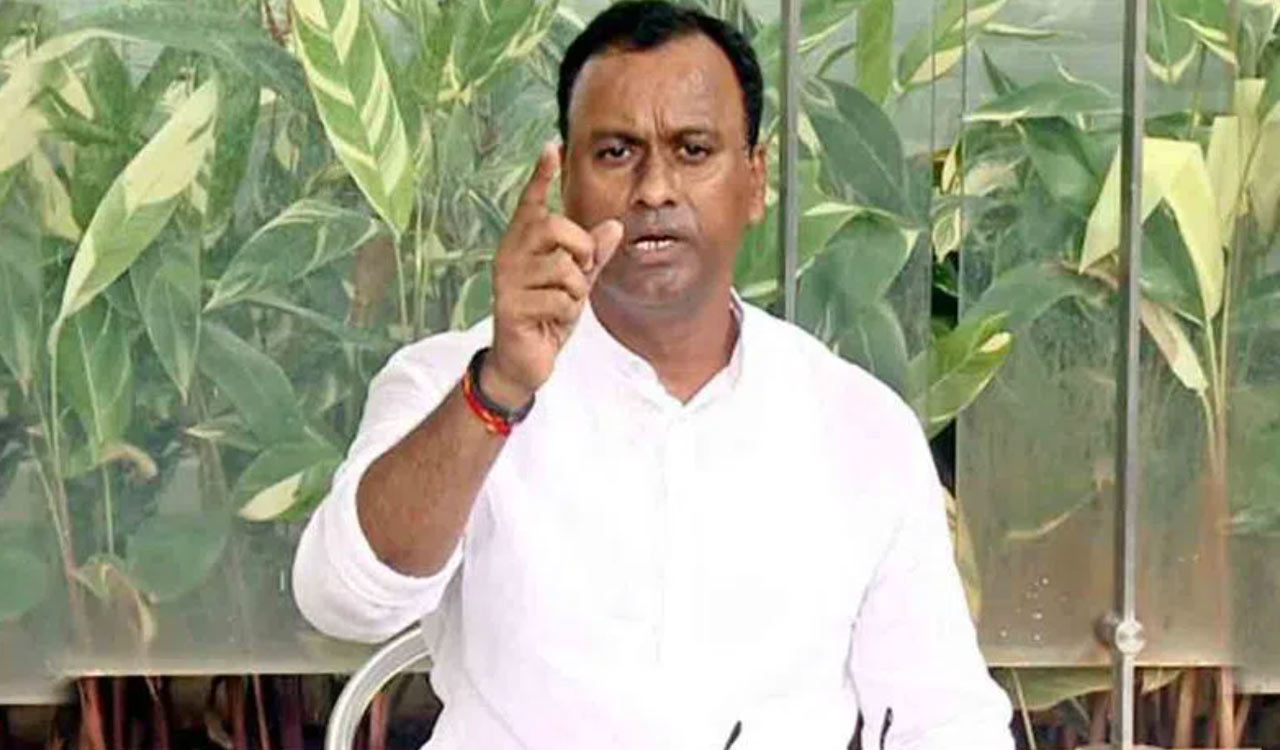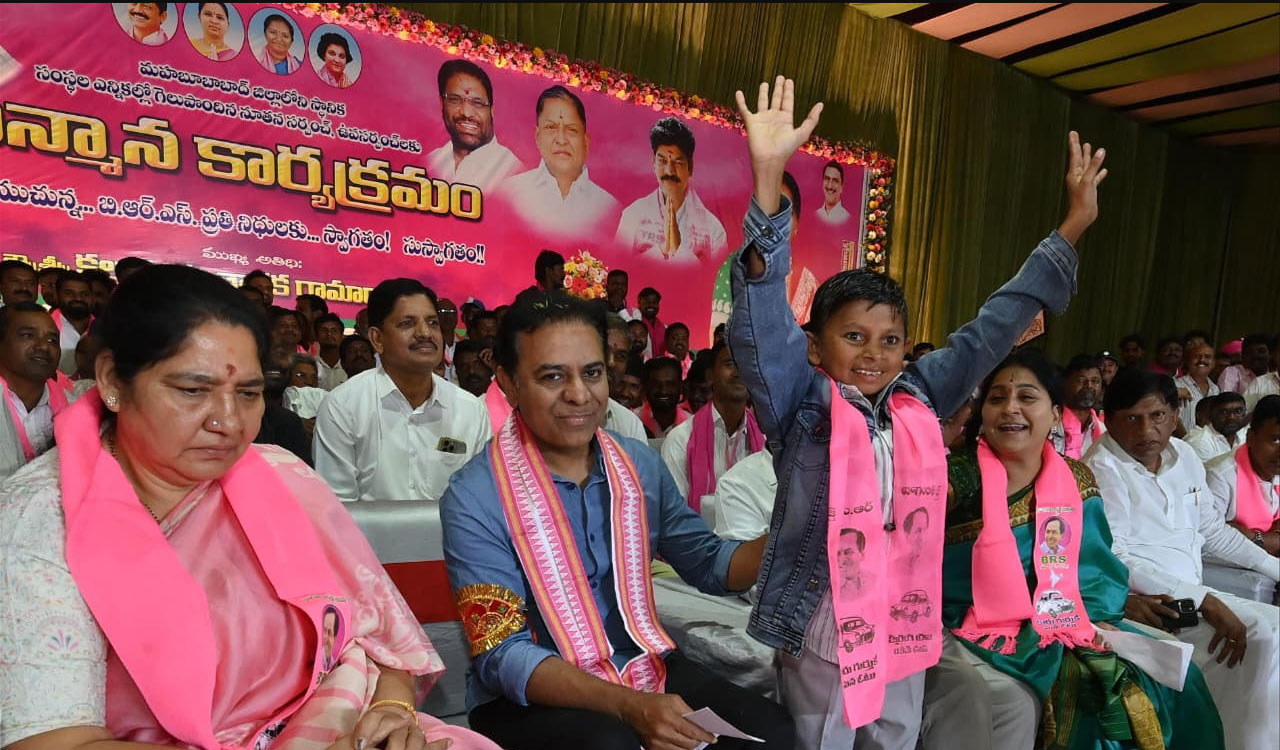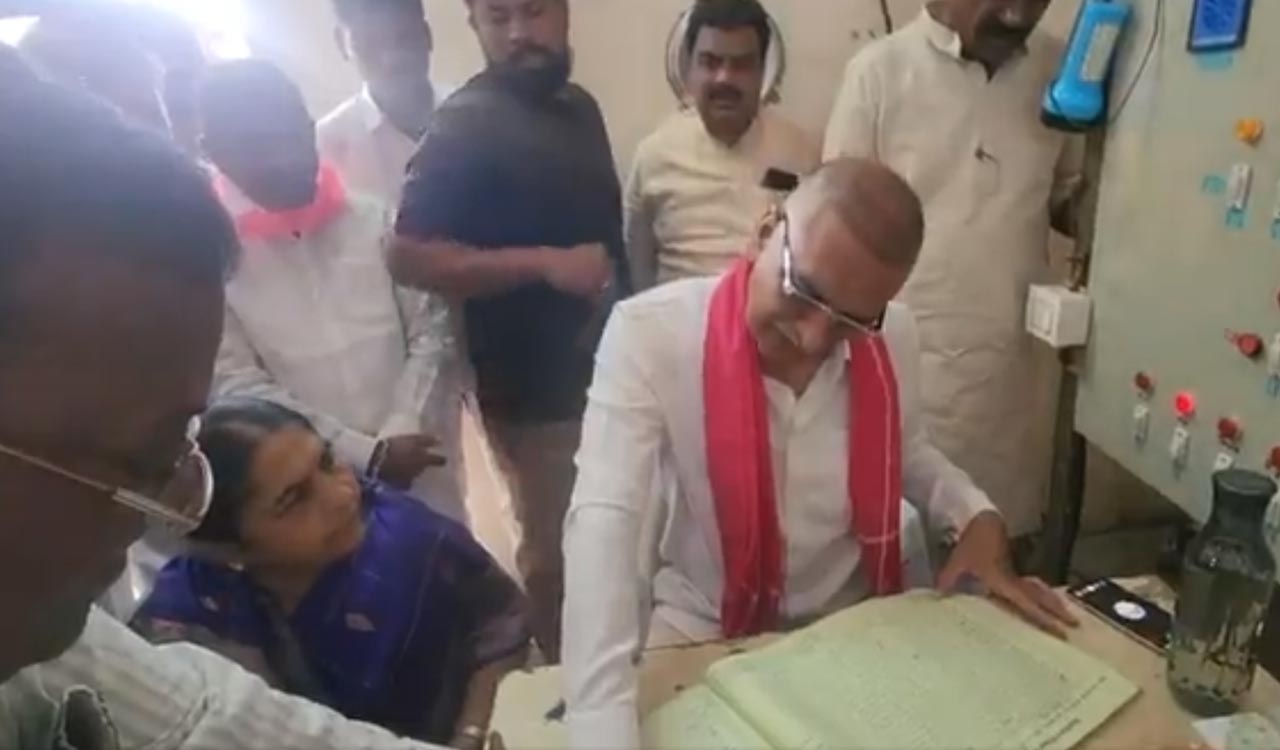Wave of distress sale sweeps through Telangana’s agricultural lands
Over the last one year, land prices have plummeted, plunging small and marginal farmers into crisis

Hyderabad: Once a symbol of prosperity and financial security, land in Telangana has now become a source of distress for farmers. One-and-a-half year ago, the mantra was clear: ‘Sell one acre in Telangana, and you can buy 10 in Andhra Pradesh‘, a fact that even AP Chief Minister N Chandrababu Naidu had acknowledged. Prices of agricultural land here had skyrocketed, fetching up to Rs 30 lakh per acre and even up to Rs 2.5 crore for plots of the same size along strategic highways.
Infrastructure development, especially irrigation projects and improved connectivity during the previous BRS regime, fuelled this agricultural boom, boosting farmers’ confidence and allowing them to tackle financial adversities with ease. Free power and crop investment support under Rythu Bandhu also made agriculture remunerative. But this golden era has swiftly faded. Over the last one year, land prices have plummeted, leaving farmers grappling with a harsh reality. The once coveted acres now find no buyers, and a wave of distress sale is sweeping through the region. This stark contrast to the vibrant market during the BRS regime has left many farmers in a state of uncertainty and concern.
The decline in land values in Telangana has led to a significant crisis for the State’s small and marginal farmers. Many farmers rely on land as collateral for loans from banks and informal moneylenders. A drop in land prices has severely affected their credit worthiness, making it difficult to secure loans for agricultural investments or personal expenses.
Golla Upender from Mulkalapalli village in Mahabubabad district said farmers were finding it challenging to sell their land at expected prices. Even with four acres of land, each costing around Rs 30 lakh (per acre), the farmers are failing to merit consideration for a fresh agriculture loan of even Rs 1 lakh-Rs 2 lakh from financial institutions. There are no buyers too.
If at all there is one, the price the buyer offers is ultimate. Buyers are offering 30-40 per cent less than the expected price, forcing farmers to dispose of the land in case of distress to meet urgent needs, such as those requiring funds for a daughter’s marriage, a son’s education, or a wife’s surgery. This is hard to reconcile with for any agriculture family.
The failure of the State government to ensure the promised loan waiver of up to Rs 2 lakh has further worsened the situation. Upender says even the Naidupet branch of a popular public sector bank, which was previously liberal in meeting the credit needs of farmers, was now hesitant to provide advances. This has resulted in reduced borrowing capacity for farmers, affecting their ability to invest in agriculture, purchase seeds, fertilizers, or machinery, and even meet personal expenses.
The decline in land values has forced farmers, in many cases, into distress migration to urban areas in search of work as daily wage labourers. Farmers are also hesitant to make long-term investments in their land, such as creating irrigation facilities or land development, fearing inadequate returns. This reluctance can reduce productivity and further lower their confidence in agriculture as a sustainable livelihood.
The psychological and social effects of the drop in land values are also significant. Telangana has witnessed agrarian distress in the past, with farmer suicides linked to debt and falling incomes. When land, their primary asset, loses value, it intensifies their psychological burden, creating a sense of despair and insecurity among farmers, says KVNL Narasimha Rao, who gave up his job in Hyderabad during the BRS regime to resume cultivation of his ancestral lands. Now he may make a comeback to the city.
He has over 50 acres of land under Rabi crop under the NSP left canal in Nelakondapalli mandal and hence facing that many travails too. In districts surrounding Hyderabad, such as Rangareddy, Medchal and Nalgonda, land values are influenced by urbanization and real estate trends. The demand for land has fallen as infrastructure projects have slowed down, further affecting farmers who hoped to benefit from a rise in land prices in the near future.
For Telangana’s peasant community, land is not just an asset but a key determinant of financial security and confidence. A drop in land values can lead to a vicious cycle of financial distress shaking their confidence in agriculture and rural livelihoods. The land crisis has reflected sufficiently on the State’s real estate sector as well as the State’s revenue from stamps and registrations.
With only a month left in the fiscal year, the registration department has managed to collect just Rs 10,918 crore against the target of Rs 18,220 crore, falling short by nearly half from the department. The department levies charges in the form of stamp duty, registration fee, transfer duty and mutation fee for the land transactions.
According to the 2023-24 figures, 11.4 per cent (Rs 1,668 crore) of the total revenue generated by the Stamp and Registrations Department came from registration of agriculture lands, 35.1 per cent (Rs 5,115 crore) of it from the registration of apartments, while 22.8 per cent (Rs 3,322 crore) comes from the registration of plots. A major drop is feared this year, thanks to the agrarian crisis that is stalking Telangana.
Related News
-
SKLTHU hosts three-day vegetable research programme for scientists, farmers
33 mins ago -
TGCHE holds workshop to boost government college NIRF rankings
38 mins ago -
Kabaddi player Ramavath Nandi returns after two major knee surgeries
43 mins ago -
KP Vivekananda slams Revanth Reddy over failed governance
45 mins ago -
Harish Rao condemns Balka Suman’s arrest, accuses Congress of undermining democracy
49 mins ago -
BJP expresses willingness to join hands with BRS for Khanapur municipal election
51 mins ago -
BRSV president slams Congress for arresting Balka Suman, calls for bandh on Thursday
52 mins ago -
Fertilizer booking app fails to end farmers’ urea troubles in Karimnagar
53 mins ago




